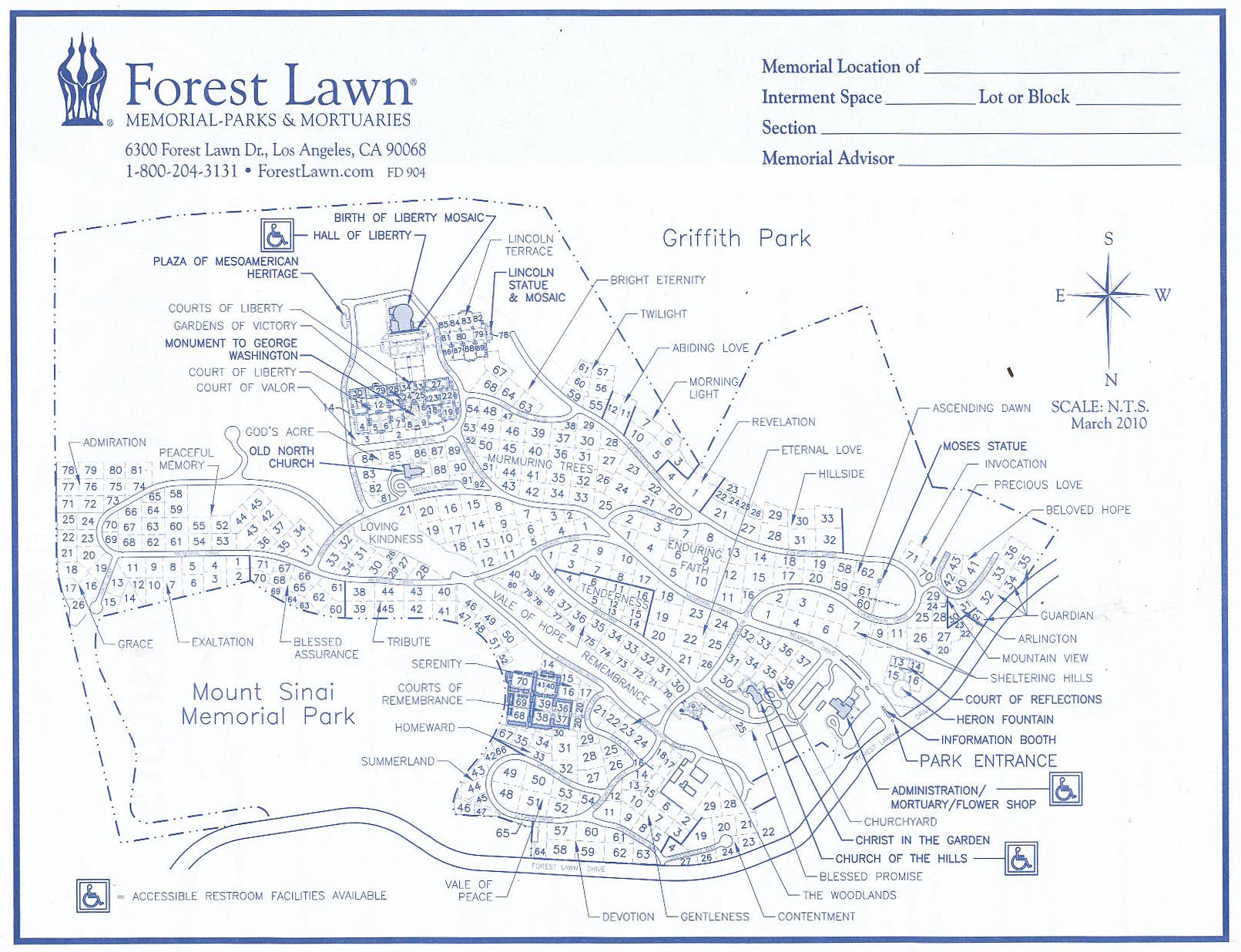Gene Autry
Fun Facts
Autry is a member of both the Country Music Hall of Fame and the Nashville Songwriters Hall of Fame, and is the only person to be awarded stars in all five categories on the Hollywood Walk of Fame, for film, television, music, radio, and live performance. The town of Gene Autry, Oklahoma, was named in his honor, as was the Gene Autry precinct in Mesa, Arizona.
Cemetery Information:
Final Resting Place:
Forest Lawn Memorial Park – Hollywood Hills
6300 Forest Lawn Drive
Los Angeles, California, 90068
USA
North America
Map:

Grave Location:
Sheltering Hills, Lot 1048, Space 2Grave Location Description
As you enter the cemetery drive 300 feet past the gates and park on your right. Look up the hillside for a large statue. As you walk towards the statue look to your right for Lot 1048 until you find the large bronze flat monument which marks the final resting place of The Singing Cowboy, Gene Autry.
Grave Location GPS
34.148356944983384, -118.32620564884931Photos:
FAQ's
Read More About Gene Autry:
- Published Obituary
- Wikipedia Entry
- The Official Website of Gene Autry, America's First Singing Cowboy
- The Society Of Baseball Research - Gene Autry
- Gene Autry and the Story of Rudolph The Red Nosed Reindeer
- The Flying A Estate of Gene Autry
- Autry Museum of The American West
- Jackie and Gene Autry's Palm Springs Home on Market for $8.5 Million
- Investment Business Daily - Gene Autry, Part of Forbes 400
- "Ole Gene" Chased and Caught His Rainbow - Gail Davis
- Gene Autry Discography
- The Pre-Autry Angels - Hardball Times







